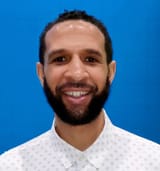"Sick Care vs. Health Care"

Takeaways from Dr. Mary O'Connor's conversation with Brandy Wilkins, DPT of Kairos Conversations
When I saw my Linkedin friend, Brandy Wilkins, was seeking suggestions on guests for her Kairos Conversations podcast, I hesitated to chime in. Brandy’s posts always generate a steady stream of engagement, and I didn’t want my suggestion to get lost. But I figured what the heck, I’ll jump in. What I didn’t hesitate on was exactly who to suggest: Mary O’Connor, MD, whose story I featured on this blog in March.
Dr. O’Connor has spent her career helping promote health equity. In 2023 she was awarded both the American Association of Orthopedic Surgeons Diversity Award and the American Association of Hip and Knee Surgeons Diversity Award. Dr. O’Connor also chairs Movement is Life, a multi-disciplinary coalition whose goal is eliminating health disparities in musculoskeletal (MSK) health, and is a co-founder of Vori Health. Vori has been making waves with its humane approach to healthcare. The company seeks to reduce unnecessary MSK surgical procedures through an integrated, multi-disciplinary approach, in a telehealth setting, led by a non-surgical orthopedist supported by a team of physical therapists, dieticians, and health coaches. Dr. O’Connor’s passion for her work comes through with clarity and intent every time she speaks. Her Kairos Conversation with Brandy, who is a physical therapist, was no different. In fact, in Brandy’s own words, it left her “physical therapist heart dancing.”
If you’re a healthcare professional or someone interested in learning how to improve our healthcare system, you MUST listen to this interview.
And if you enjoy this conversation, check out other episodes of the Kairos Conversations podcast. Brandy is a thoughtful and engaging host whose casual vibe never fails to draw nuggets of knowledge from healthcare professionals she speaks with, across the spectrum of healthcare.
Here are some takeaways from her conversation with Dr. O’Connor
- Wellness should be moved out of a clinical setting and into communities
“We somehow look at the healthcare system and want to put all this burden on the clinicians. We don’t have a healthcare system, we have a sick care system.
Our sick care system, in general, can work pretty well but clinicians are not trained on how to promote health. We do not have the ability to fundamentally impact social determinants of health and other factors that influence the health of individuals within their communities.
I really see the need to change our mindset on this and move wellness into the community and leave sick care in what I call ‘the sick-care system’ – or as we call it now, the healthcare system.”
- Providers should be incentivized to keep patients out of surgery (unless necessary)
“There are all these other levers that we don’t utilize in traditional healthcare, why? Because nobody pays for it. Nobody pays for you to see a health coach. You have to have diabetes and kidney compromise for Medicare to pay for you to see a registered dietician.
If we started to focus on how we can move upstream and focus on health in communities it would be far more cost-effective and I think more impactful.
If you look and say what are some of the other problems we have in the traditional healthcare system? Certainly in the MSK space, it’s over-utilization of surgical procedures. I’m a surgeon and my co-founder is a neuro-spine surgeon, Dr. Ryan Grant. We’re not anti-surgery, we’re just anti-inappropriate surgery. The reality is, that most surgeons are not trained well in non-surgical care. When you’ve got a hammer all the world is a nail.”
- Vori’s Collaborative Care Evolution
“We are now putting the physician and the (physical) therapist together with the patient the whole time and everybody loved it. It’s a 40-minute visit and the patient only has to tell their history once. And both clinicians are contributing to this. The doc typically leads the history session but the PT is there to ask any questions they want answers to or to dive deeper into anything the patient said, so it’s very collaborative; the same thing with the physical exam. It’s really been an exciting experience and we are currently conducting a research study surveying patients to get data on their experience.”
Stephen Norris is a strategic provider partnerships and management expert with a track record of driving growth and profitability. He has extensive experience building and expanding provider partnerships within the healthcare industry. Norris is skilled in contract negotiation, stakeholder management, and data analysis with a demonstrated ability to lead and motivate teams to deliver exceptional results. He has a deep understanding of the healthcare landscape and a passion for health equity through improving patient outcomes. He is #OpentoWork.




